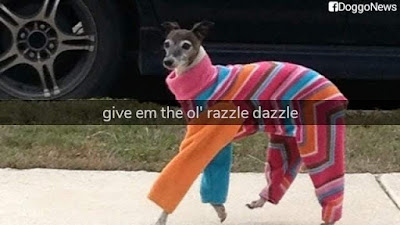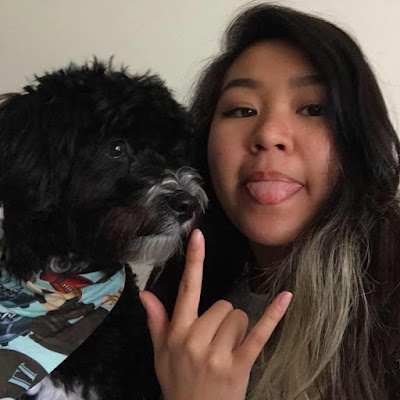Story Lab, Week 10
For this story laboratory, I decided to watch the 8 videos on creative writing and style. Each video is fairly short, about 5 minutes long so below are just some of the main points I was able to get from from each one.
1. The Power of Creative Constraints by Brandon Rodriguez.
"Boundless freedom isn't always helpful." Creative constraints are the requirements and limitations we have to address in order to accomplish a goal. Many times, constraints drive discovery and invention.
2. What Makes a Hero? by Matthew Winkler.
Hero's Journey Template:
Status Quo, Assistance, Departure, Trials, Approach, Crisis, Treasure, Result, Return, New Life, Resolution, Status Quo (but upgraded a new level).
I personally never saw it like this but walking through it with the example makes perfect sense.
3. How to Build a Fictional World by Kate Messner.
Fictional worlds operate consistently, making it believe-able, comprehensible and worth exploring. Authors of science fiction and fantasy literally build worlds, and when done well, readers can understand the fictional worlds just as well as the characters in the book. Your imagination and willingness to figuratively live in your own world are all you need to build up your own world. Start with a basic place/time. Brainstorm answers to questions that draw out details of fictional world (rules in place? punishments?) What kind of government? What do people believe, what does society value? Weather? Etc.
4. What "Orwellian" Really Means by Noah Tavlin.
Named after British author, Eric Blair, known by penname "George Orwell". His novel 1984 depicts an oppressive society under a totalitarian government. "Orwellian" simply means "authoritarian". This doesn't fully convey Orwell's message, however, and actually goes against what he's trying to say. "Doublespeak" is using words, not to convey meaning but to undermine it. Orwell was warning us of this occurring even in democratic societies, not just authoritarian.
5. What Makes Something "Kafkaesque"? by Noah Tavlin.
"Kafkaesque" is used to describe unnecessarily complicated and frustrated experiences. Beyond casual use, Kafkaesque is used to describe the absurdity of bureaucracy, and irony of character's circular reasoning.
6. How to Write Descriptively by Nalo Hopkinson.
Write so readers experience story on a visceral and conceptual level. Use well-chosen words to engage sound, sight, taste, touch, and movement. Create unexpected connotations among story elements.
7. Beware of Nominalizations (AKA Zombie Nouns) by Helen Sword.
Nouns made from other parts of speech are called nominalizations, or zombie nouns because they cannibalize active verbs. Nominalizations fail to tell us who is doing what. They impede clear communication.
8. The Pleasure of Poetic Pattern by David Silverstein.
We are creatures of rhythm and repetition, it is essential to our being (heartbeats, breathing, etc). Pattern can be pleasure. These are also used as a building block for poetry. Rhythm itself is a form of repetition. Too much repetition can backfire, however. Poetic repetition can sound pleasurable.
 |
| Razzle Dazzle. Source: DoggoNews. |
1. The Power of Creative Constraints by Brandon Rodriguez.
"Boundless freedom isn't always helpful." Creative constraints are the requirements and limitations we have to address in order to accomplish a goal. Many times, constraints drive discovery and invention.
2. What Makes a Hero? by Matthew Winkler.
Hero's Journey Template:
Status Quo, Assistance, Departure, Trials, Approach, Crisis, Treasure, Result, Return, New Life, Resolution, Status Quo (but upgraded a new level).
I personally never saw it like this but walking through it with the example makes perfect sense.
3. How to Build a Fictional World by Kate Messner.
Fictional worlds operate consistently, making it believe-able, comprehensible and worth exploring. Authors of science fiction and fantasy literally build worlds, and when done well, readers can understand the fictional worlds just as well as the characters in the book. Your imagination and willingness to figuratively live in your own world are all you need to build up your own world. Start with a basic place/time. Brainstorm answers to questions that draw out details of fictional world (rules in place? punishments?) What kind of government? What do people believe, what does society value? Weather? Etc.
4. What "Orwellian" Really Means by Noah Tavlin.
Named after British author, Eric Blair, known by penname "George Orwell". His novel 1984 depicts an oppressive society under a totalitarian government. "Orwellian" simply means "authoritarian". This doesn't fully convey Orwell's message, however, and actually goes against what he's trying to say. "Doublespeak" is using words, not to convey meaning but to undermine it. Orwell was warning us of this occurring even in democratic societies, not just authoritarian.
5. What Makes Something "Kafkaesque"? by Noah Tavlin.
"Kafkaesque" is used to describe unnecessarily complicated and frustrated experiences. Beyond casual use, Kafkaesque is used to describe the absurdity of bureaucracy, and irony of character's circular reasoning.
6. How to Write Descriptively by Nalo Hopkinson.
Write so readers experience story on a visceral and conceptual level. Use well-chosen words to engage sound, sight, taste, touch, and movement. Create unexpected connotations among story elements.
7. Beware of Nominalizations (AKA Zombie Nouns) by Helen Sword.
Nouns made from other parts of speech are called nominalizations, or zombie nouns because they cannibalize active verbs. Nominalizations fail to tell us who is doing what. They impede clear communication.
8. The Pleasure of Poetic Pattern by David Silverstein.
We are creatures of rhythm and repetition, it is essential to our being (heartbeats, breathing, etc). Pattern can be pleasure. These are also used as a building block for poetry. Rhythm itself is a form of repetition. Too much repetition can backfire, however. Poetic repetition can sound pleasurable.


Comments
Post a Comment